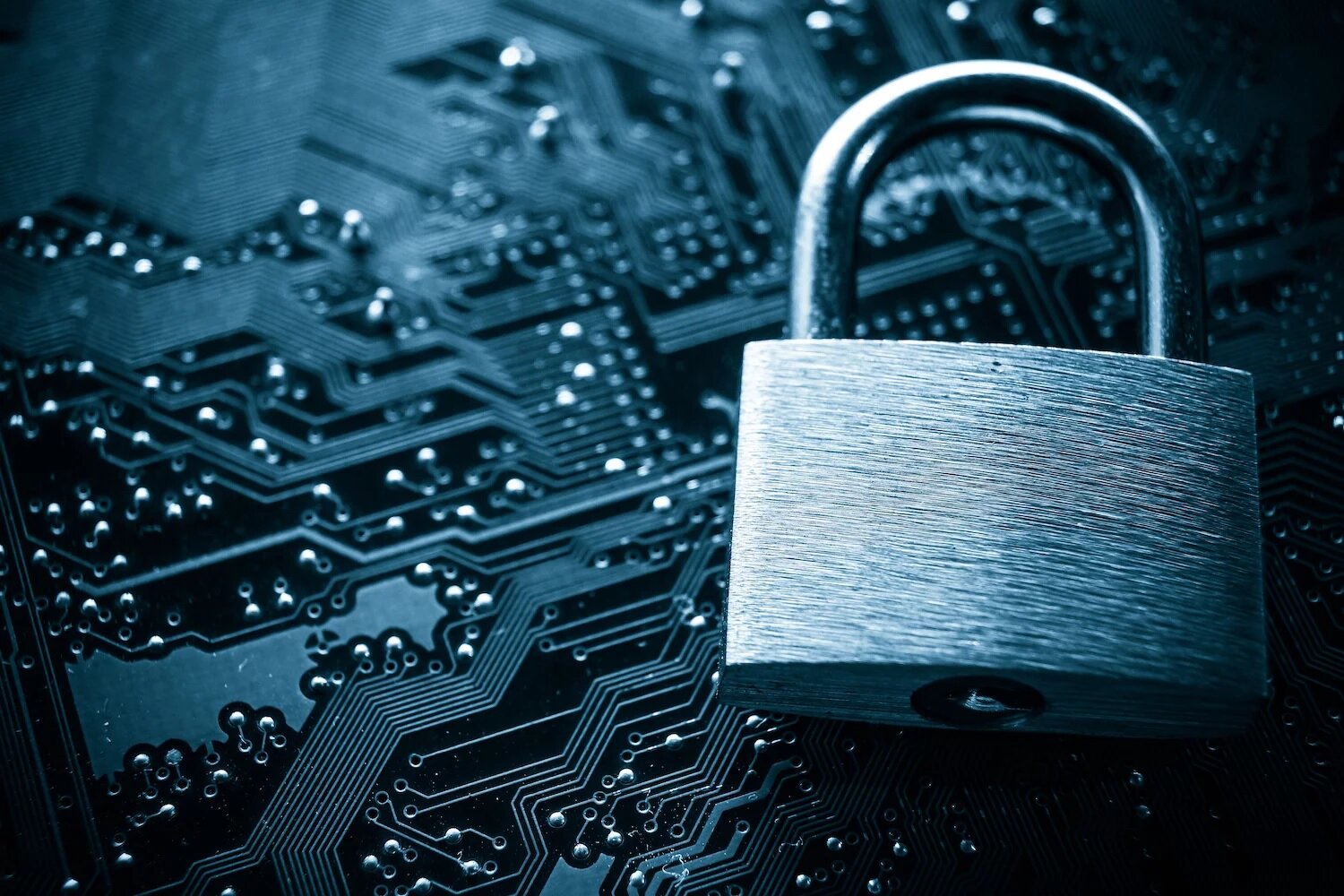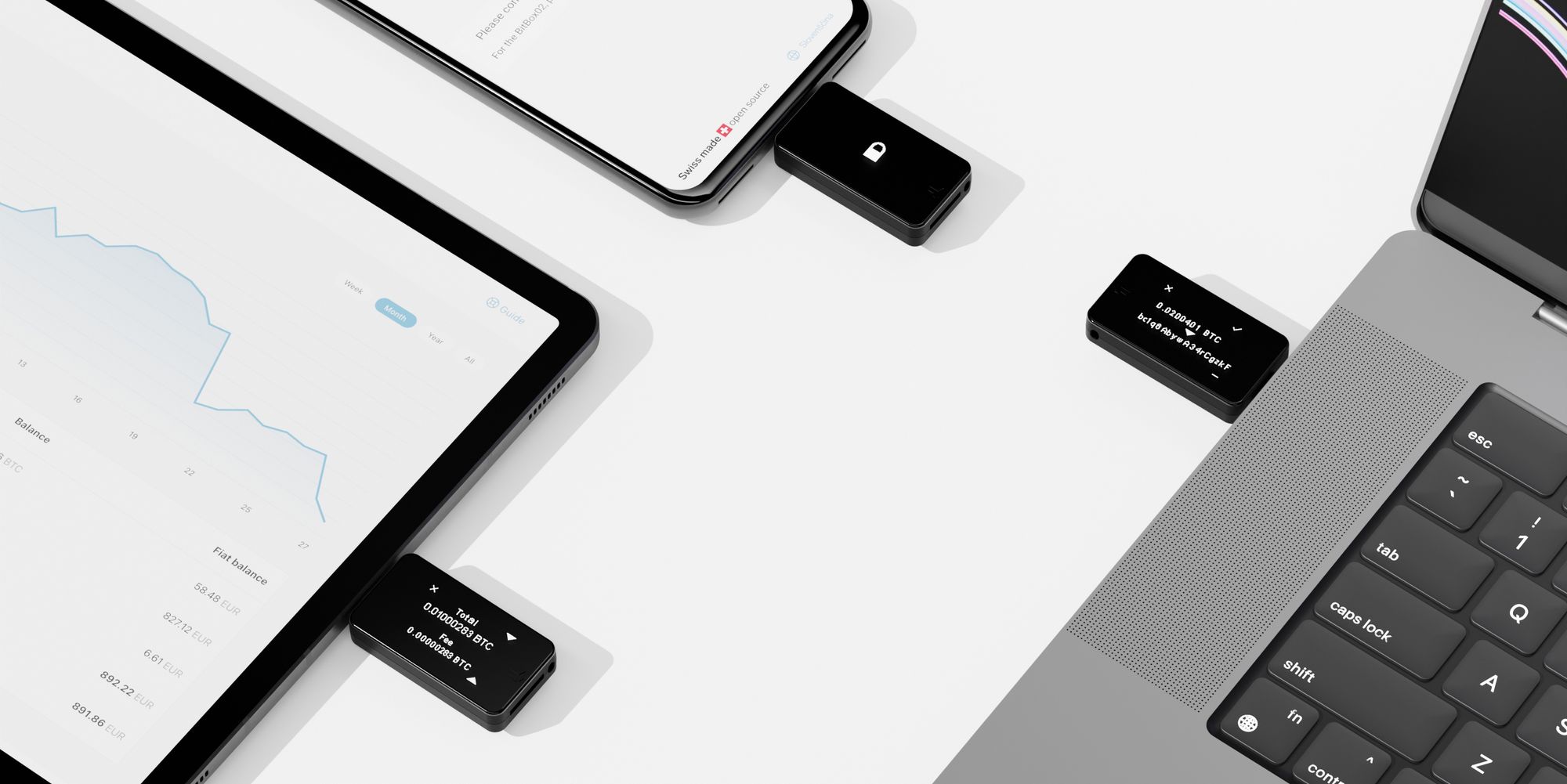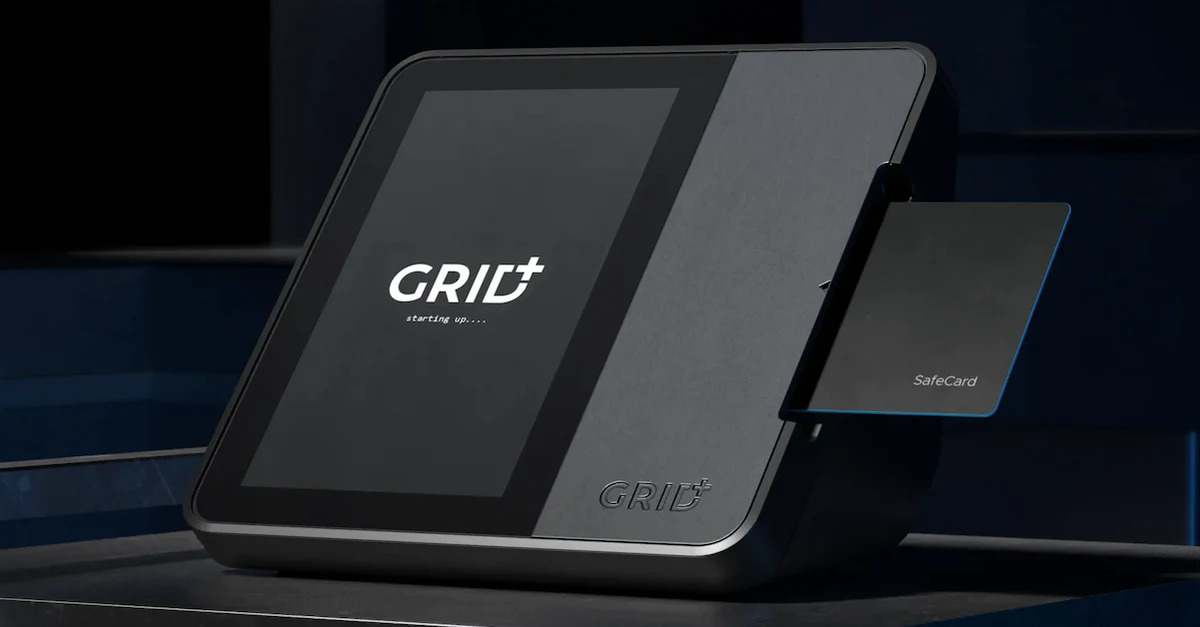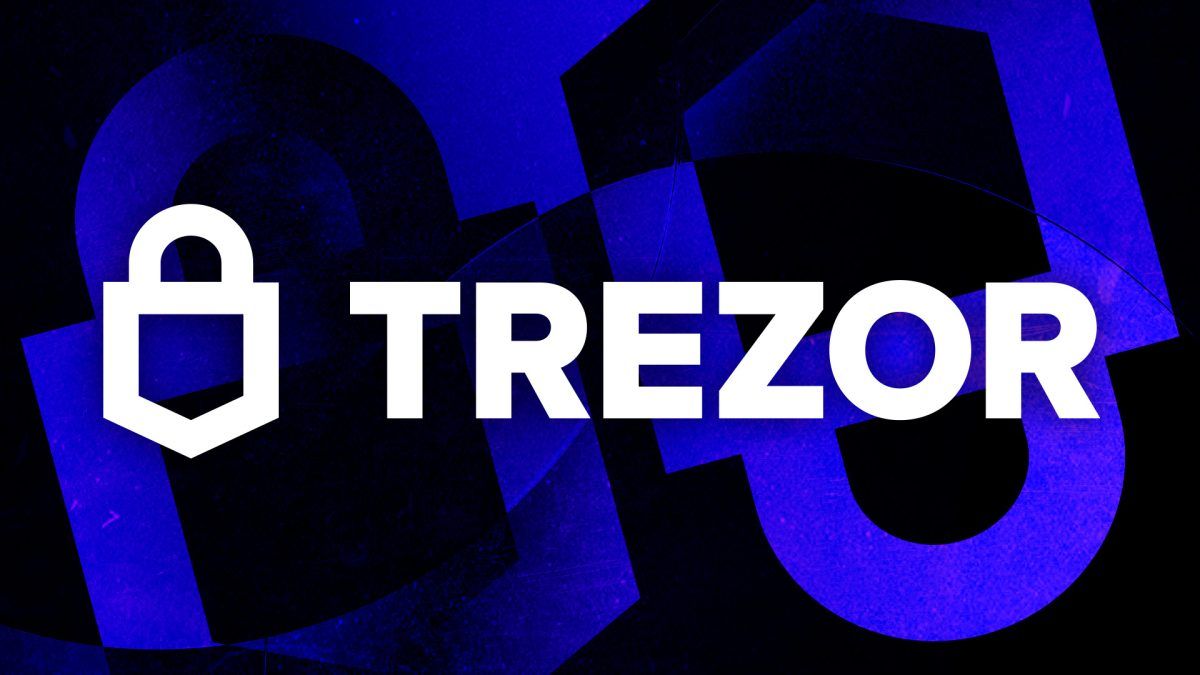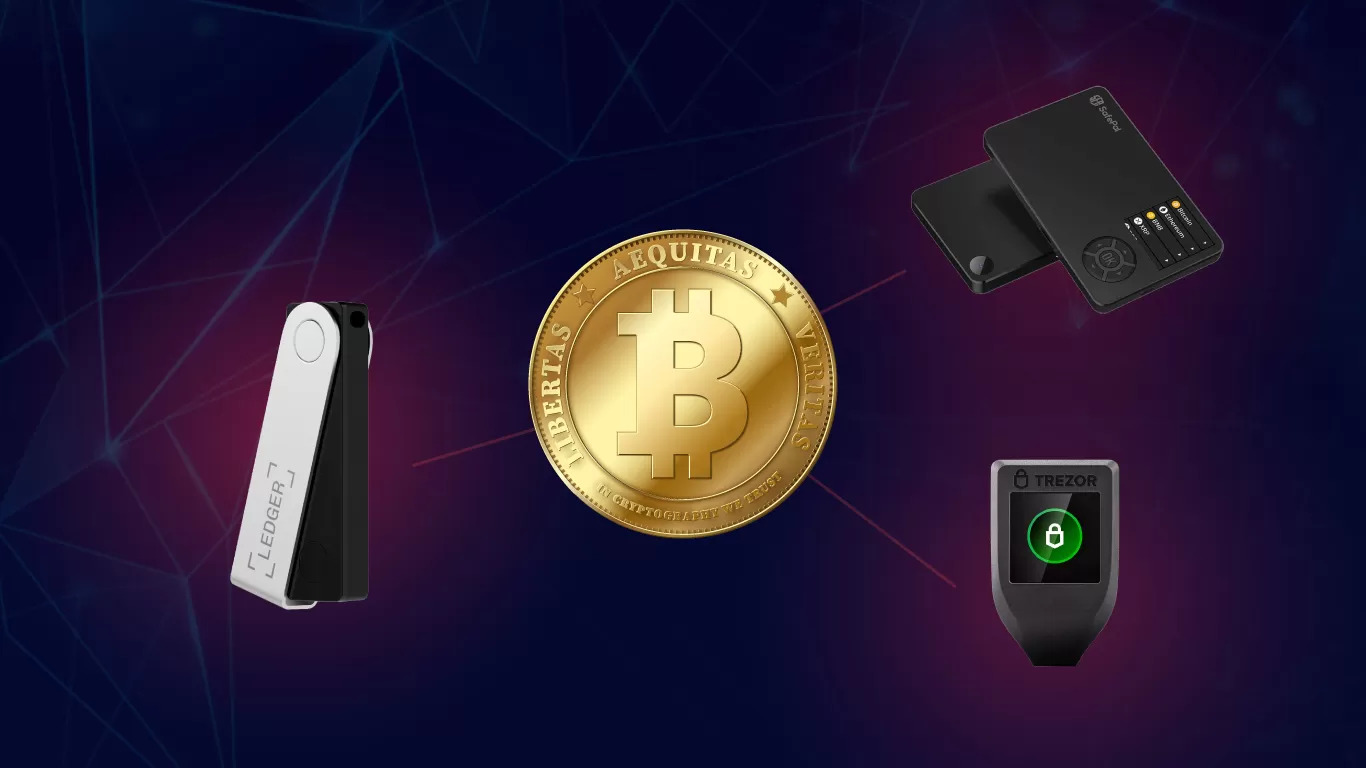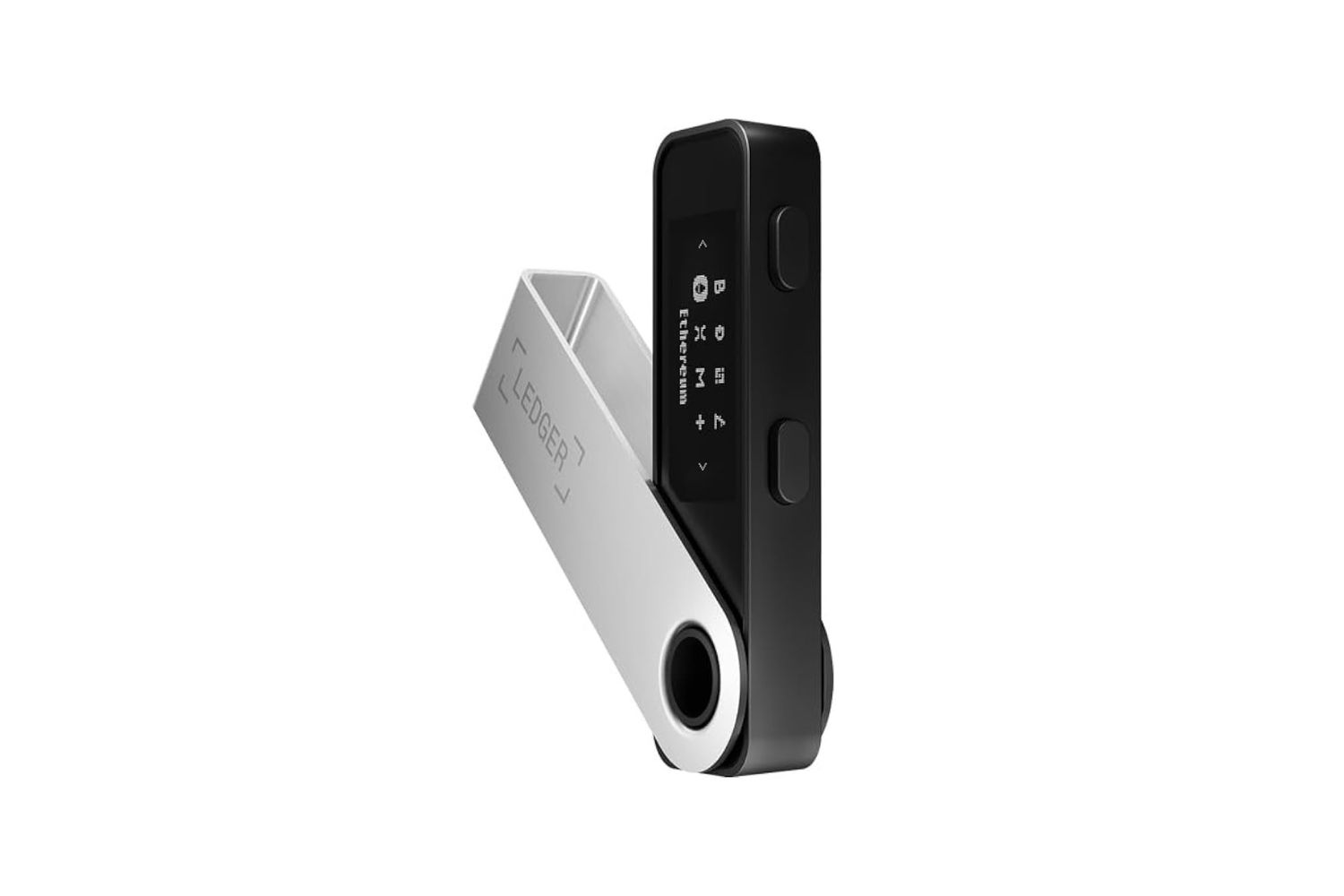Introduction
Welcome to the world of cryptocurrencies, where digital assets are revolutionizing the way we transact and store value. As the popularity of cryptocurrencies continues to grow, so does the importance of keeping them safe and secure. With the decentralized nature of cryptocurrencies, it is crucial for individuals to take proactive steps to protect their digital investments from potential threats.
This article aims to provide you with essential tips on how to keep your crypto safe. By implementing these measures, you can minimize the risk of theft, hacking, and other security breaches, ensuring your peace of mind while navigating the crypto landscape.
Before we dive into the specifics, it’s important to understand that the security of your crypto assets is ultimately your responsibility. While the blockchain technology underlying cryptocurrencies is highly secure, vulnerabilities can still arise through external factors such as user error, phishing attacks, and malware.
Therefore, it’s crucial to stay informed and educated about potential risks and the best practices for safeguarding your digital wealth. By following the recommendations outlined in this article, you’ll be better equipped to protect your hard-earned crypto assets.
So, without further ado, let’s explore how you can keep your crypto safe and secure!
Use a Secure Wallet
When it comes to keeping your cryptocurrencies safe, using a secure wallet is the first line of defense. A wallet is a digital software or hardware device that allows you to store, send, and receive your crypto assets.
There are several types of wallets available, each with its own level of security.
Firstly, hardware wallets are considered the most secure option. These physical devices store your private keys offline, away from potential online threats. They typically require you to verify transactions directly on the device, providing an extra layer of protection against malware or hacking attempts. Examples of popular hardware wallets include Ledger and Trezor.
Secondly, software wallets, or digital wallets, are applications that you can download onto your computer or mobile device. While these wallets offer convenience and ease of use, they tend to be more vulnerable to online attacks. It’s crucial to ensure you download wallets from reputable sources and keep them updated with the latest security patches and updates.
Lastly, there are online wallets, also known as web wallets or exchange wallets. These wallets are provided by cryptocurrency exchanges to store your assets. While they offer convenience and easy accessibility, they present a higher risk due to their online nature. It’s important to research and choose reputable exchanges that prioritize security and have a track record of safeguarding user funds.
Remember, regardless of the type of wallet you choose, make sure to back up your wallet’s recovery phrase or private key securely. This backup allows you to regain access to your funds in the event of loss, theft, or damage to your device.
In summary, using a secure wallet is essential for safeguarding your cryptocurrencies. Take the time to research and choose a trusted wallet that suits your needs and provides robust security measures. Remember to back up your wallet and regularly update your software for maximum protection against potential threats.
Enable Two-Factor Authentication
One of the most effective ways to enhance the security of your crypto accounts is by enabling two-factor authentication (2FA). This adds an extra layer of protection by requiring you to provide an additional piece of information, typically a unique code, in addition to your password when logging in or performing transactions.
There are several types of 2FA methods available. One common method is using a mobile authentication app, such as Google Authenticator or Authy, which generates a unique code that changes every few seconds. When logging into your crypto account, you’ll need to enter this code along with your password.
Another option is receiving a verification code via SMS. In this case, when you attempt to log in or perform a transaction, a code will be sent to your registered mobile number, and you’ll need to enter that code to proceed.
Enabling 2FA adds an extra layer of security to your account, as even if an attacker manages to obtain your password, they would still need the unique code from your authentication app or SMS to gain access. This significantly reduces the chances of unauthorized access to your crypto assets.
It’s important to enable 2FA on all platforms and exchanges where you hold cryptocurrencies. Additionally, it’s advisable to regularly review your 2FA settings and ensure that your authentication methods are up to date.
Remember, it’s crucial to choose a strong and unique password when setting up 2FA. Avoid using common or easily guessable passwords to further enhance the security of your accounts.
By enabling two-factor authentication, you can significantly reduce the risk of unauthorized access to your crypto accounts. This simple yet powerful security measure adds an additional layer of protection, providing you with peace of mind and ensuring the safety of your digital assets.
Keep Your Software Up to Date
Keeping your software up to date is a crucial step in maintaining the security of your crypto assets. This includes both the operating system on your devices and the wallets or applications you use to manage your cryptocurrencies.
Software updates often include important security patches and bug fixes that address vulnerabilities and potential exploits. By regularly updating your software, you ensure that you have the latest security measures in place to protect your crypto holdings.
Operating system updates, whether on your computer or mobile device, should be installed as soon as they become available. These updates often contain crucial security patches that address known vulnerabilities that could be exploited by hackers.
In addition to updating your operating system, it’s essential to keep your crypto wallet or app up to date. Wallet developers frequently release updates that enhance security and address any identified weaknesses. By staying up to date with these updates, you benefit from the latest protections against potential threats.
Many wallets offer automatic updates, which make the process seamless and convenient. However, if your wallet doesn’t have this feature, it’s important to regularly check for updates and manually install them when available.
By keeping your software up to date, you minimize the risk of falling victim to known vulnerabilities that could compromise the security of your crypto assets. It’s an essential step in maintaining the overall security of your digital investments.
Remember, staying up to date goes beyond just your operating system and wallet software. It’s important to have updated antivirus software and a robust firewall installed on your devices to provide an additional layer of protection against malware and other online threats.
In summary, regularly updating your software, including your operating system and wallet applications, is crucial to maintaining the security of your crypto assets. By keeping up with the latest updates and patches, you ensure that your digital investments are safeguarded against potential vulnerabilities and exploits.
Practice Good Password Management
Practicing good password management is essential when it comes to securing your crypto accounts and wallets. A strong and unique password is your first line of defense against unauthorized access and potential theft of your digital assets.
Here are some important tips to follow for effective password management:
Create a Strong Password: Choose a password that is complex and difficult to guess. Use a combination of uppercase and lowercase letters, numbers, and special characters. Avoid using personal information or common phrases that can be easily obtained or guessed.
Use a Different Password for Each Account: Avoid using the same password for multiple accounts. If one account gets compromised, it could potentially give access to all your other accounts. Using a unique password for each account adds an extra layer of protection.
Consider Using a Password Manager: A password manager can help you generate strong passwords and store them securely. This eliminates the need to remember multiple passwords and reduces the risk of using weak or easily guessable passwords.
Enable Biometric Authentication: Many devices and platforms offer biometric authentication methods such as fingerprint or face recognition. Enabling these features adds an extra layer of security, as only your unique biometric data can unlock your device or access your accounts.
Change Passwords Regularly: It’s recommended to change your passwords periodically, especially for your crypto accounts and wallets. This proactively reduces the risk of unauthorized access and ensures that you have control over your accounts.
Be Cautious of Phishing Attempts: Phishing is a common method used by cybercriminals to trick individuals into revealing their passwords or other sensitive information. Be cautious of emails, websites, or messages that appear suspicious or ask for your login credentials. Always double-check the website’s URL before entering your password.
Securely Store Your Passwords: If you choose to store your passwords manually, do so in a secure and confidential manner. Avoid writing them down on paper or saving them in easily accessible digital files. Instead, consider using encrypted storage methods or physical lockboxes to safeguard your passwords.
Monitor Your Accounts: Regularly monitor your crypto accounts for any unusual activity. If you notice any suspicious transactions or login attempts, take immediate action to protect your assets, such as changing your password and reporting the incident to the platform or exchange.
By following these password management practices, you greatly enhance the security of your crypto accounts and wallets. Remember, a strong password is your first line of defense against unauthorized access, so take the time to create unique and robust passwords for each of your accounts.
Be Wary of Phishing Attacks
Phishing attacks are a common method used by cybercriminals to deceive individuals into revealing sensitive information, such as passwords, private keys, or account details. It’s important to be vigilant and take necessary precautions to protect yourself from falling victim to these scams.
Here are some tips to help you identify and avoid phishing attacks:
Verify the Sender: Be cautious of emails, messages, or websites claiming to be from cryptocurrency exchanges or wallets. Double-check the sender’s email address or website URL to ensure they are legitimate. Hackers often create fake websites or use email addresses that closely resemble the official ones.
Don’t Click on Suspicious Links: Avoid clicking on links sent through emails or messages that ask you to provide login credentials or other sensitive information. Always manually type in the website URL or use bookmarks to access platforms or wallets you are familiar with.
Double-check Website Security: Before entering your login credentials or private information, ensure that the website you are visiting is secure. Look for a secure connection indicated by “https://” in the website URL and a padlock icon in the browser address bar.
Be Cautious of Urgent Requests: Phishing messages often create a sense of urgency, such as warning of account suspension or missed payments. Take a moment to evaluate the situation and don’t rush into providing your personal information. Legitimate service providers will not typically ask for sensitive information via email or message.
Keep Software and Antivirus Updated: Regularly update your antivirus software and other security tools to protect against potential phishing attacks. These tools can help detect and block malicious websites or suspicious activities.
Educate Yourself and Stay Informed: Keep yourself updated with the latest phishing techniques and security measures. Stay informed about common scams and tactics used by cybercriminals to target cryptocurrency users.
Use a Virtual Private Network (VPN): When accessing your crypto accounts or wallets on public Wi-Fi networks, use a reliable VPN to encrypt your internet traffic. This prevents hackers on the same network from intercepting your sensitive information.
Remember, being wary of phishing attacks is crucial to protecting your crypto assets. Cybercriminals are continually evolving their tactics, so it’s essential to remain vigilant and trust your instincts. If something looks suspicious, take the necessary steps to verify the legitimacy of the request or avoid engaging with the suspicious source altogether.
By practicing caution and being aware of phishing techniques, you can significantly reduce the risk of falling victim to these scams and ensure the security of your cryptocurrency investments.
Utilize Cold Storage for Long-Term Holdings
When it comes to long-term holdings of cryptocurrencies, utilizing cold storage is highly recommended for enhanced security. Cold storage refers to storing your digital assets offline, away from the internet and potential online threats.
There are several types of cold storage options available:
- Hardware Wallets: Hardware wallets are physical devices specifically designed to securely store your private keys offline. They provide an extra layer of protection by isolating your private keys from potential malware and online attacks.
- Paper Wallets: Paper wallets involve printing your public and private keys onto paper and storing them in a safe place. By keeping your keys offline, you eliminate the risk of online vulnerabilities. However, it’s essential to securely generate and store paper wallets to ensure their integrity.
- Offline Computers: Another method is using a dedicated offline computer to store your private keys and conduct transactions. This computer should never be connected to the internet, reducing the risk of online attacks.
Utilizing cold storage provides you with control over your private keys and reduces the potential attack vectors that hackers can exploit. It significantly reduces the risk of online theft and hacking attempts.
When using cold storage for long-term holdings, it’s important to consider the following:
Security of Physical Storage: If you opt for hardware wallets or paper wallets, ensure they are stored in a secure location such as a safe or a bank vault. Protecting physical access to your cold storage is crucial.
Backup Measures: Make multiple copies of your cold storage devices or paper wallets and store them in different secure locations. This ensures redundancy in case of loss, theft, or damage to one copy.
Regular Checkups: Periodically check the integrity and functionality of your cold storage devices or paper wallets to ensure they are still in good condition. This includes verifying the printed information on paper wallets or confirming the functionality of hardware wallets.
Secure Handling of Cold Storage: When using your cold storage, it’s important to follow proper security protocols. Keep your devices or paper wallets in a secure environment and avoid exposing them to potential threats or prying eyes.
By utilizing cold storage for long-term holdings, you add an additional layer of security to your cryptocurrency investments. It offers peace of mind and protects your assets from the numerous online vulnerabilities that can occur when connected to the internet.
Remember, balance your convenience needs with security considerations when deciding whether to use hot or cold storage for your crypto holdings. Utilizing cold storage is particularly recommended for long-term investments, where the added security outweighs the accessibility and convenience of online wallets or exchanges.
Keep Private Keys Offline and Secure
Private keys are essential cryptographic codes that grant you access to your cryptocurrencies. As the sole owner of your private keys, it is crucial to keep them offline and secure to prevent unauthorized access to your digital assets.
Here are some important practices to follow when it comes to keeping your private keys offline and secure:
Use Hardware Wallets: Hardware wallets are specifically designed to securely store private keys offline. These physical devices provide a high level of protection by keeping the keys isolated from potential online threats. It’s recommended to purchase hardware wallets from trusted manufacturers and sources.
Opt for Paper Wallets: Paper wallets involve generating your private keys offline and printing them onto a physical piece of paper. This removes any online vulnerabilities associated with digital storage. However, it’s crucial to ensure the secure generation and storage of paper wallets to prevent loss or theft.
Encrypt Digital Copies: If you have digital copies of your private keys stored on your computer or other electronic devices, encrypt them using strong encryption methods. This provides an additional layer of security in case of unauthorized access to your device.
Consider Multiple Copies: Create multiple, encrypted copies of your private keys and store them in different secure locations. This ensures redundancy and mitigates the risk of losing access to your digital assets due to a single point of failure.
Avoid Digital Storage: Keeping your private keys offline means avoiding storing them on any online platform or cloud storage service. Digital storage options are vulnerable to hacking attempts and unauthorized access. Offline storage significantly reduces this risk.
Secure Physical Storage: If you choose to keep physical copies of your private keys, such as hardware wallets or paper wallets, store them in a secure location, such as a safe or a bank vault. Protecting physical access to your keys is crucial in safeguarding your cryptocurrencies.
Be Mindful of Tempting Trades: Be cautious of online platforms or individuals offering tempting trades or promises of assistance that require sharing your private keys. Never share your private keys with anyone, as it grants them full access and control over your digital assets.
Remember, your private keys are the core of your crypto security. By keeping them offline and secure, you ensure that you maintain full control over your digital assets. Following these best practices will significantly reduce the risk of unauthorized access and theft.
Lastly, regularly review and update your offline storage methods as needed. Stay informed about any advancements in offline security practices to keep up with the evolving landscape of cryptocurrency security.
Regularly Backup Your Wallet
Regularly backing up your wallet is an essential practice to ensure the safety and integrity of your cryptocurrency holdings. Accidents, hardware failures, or other unforeseen circumstances can lead to the loss of your wallet data, potentially resulting in the permanent loss of your digital assets. By regularly creating backups, you can restore your wallet and regain access to your funds if such events occur.
Here are some important considerations for backing up your wallet:
Choose the Right Backup Method: Wallet backup methods may vary depending on the software or platform you’re using. Some wallets offer backup options such as encrypted files, mnemonic phrases, or seed phrases. Familiarize yourself with the backup process specific to your wallet and choose the method that best suits your needs.
Store Backups Securely: Ensure that your wallet backups are stored securely. Consider using encrypted storage devices, such as external hard drives or USB flash drives. Keep these backups in safe and reliable locations, such as a safe deposit box or a secure lockbox.
Create Multiple Backups: It’s important to have multiple copies of your wallet backups in different physical locations. This ensures redundancy and decreases the chances of losing access to your funds if one backup becomes inaccessible or is damaged.
Set a Regular Backup Schedule: Establish a regular backup schedule to ensure that your wallet data is always up to date. This could be a weekly, monthly, or quarterly schedule, depending on your trading or transaction activity and your comfort level with potential data loss.
Test Your Backups: Periodically test your wallet backups by restoring them on a different device or wallet application. This confirms that your backups are valid and functional, providing peace of mind in knowing that you can recover your wallet if needed.
Keep Passwords and Seeds Secure: If your wallet backups include passwords, encryption keys, or seed phrases, ensure that they are securely stored separate from your backup files. Protecting these sensitive pieces of information is crucial to maintain the security of your wallets.
Update Backups with Significant Changes: Any time you make significant changes to your wallet, such as adding new addresses or making large transactions, it’s essential to create updated backups. This ensures that you have the most recent wallet data available for restoration.
By regularly backing up your wallet, you minimize the risk of losing your funds due to accidental loss or hardware failure. It provides you with the ability to restore your wallet data and regain access to your cryptocurrencies, ensuring the safety and security of your digital assets.
Remember, creating backups is an ongoing process, and it’s important to stay consistent and diligent with your backup routines. Regularly review and update your backup methods and storage locations to align with the evolving requirements of your wallet software or platform.
Use a Firewall and Antivirus Software
Using a firewall and antivirus software is crucial for maintaining the security of your devices and protecting your cryptocurrencies from online threats. These tools act as a barrier against malicious attacks, viruses, and malware that could compromise the integrity of your digital assets.
Here’s why incorporating a firewall and antivirus software is essential:
Firewall Protection: A firewall helps monitor and control incoming and outgoing network traffic. It acts as a filter, blocking unauthorized access and potential threats from entering your devices. Firewalls can be software-based, built into your operating system, or hardware devices used at the network level.
Antivirus Software: Antivirus software scans for and detects viruses, malware, and other malicious programs on your devices. It protects against malicious files that can compromise your wallet software, steal your private keys, or gain unauthorized access to your accounts.
When choosing a firewall and antivirus software, consider the following:
Reputable Providers: Stick with reputable providers for your firewall and antivirus software. Research and choose well-known cybersecurity companies that have a track record of effective protection against the latest threats.
Regular Updates: Keep your firewall and antivirus software updated with the latest security patches and virus databases. Regular updates ensure that you have the most up-to-date protection against emerging threats.
Real-Time Monitoring: Opt for software that includes real-time monitoring capabilities. This feature actively watches for suspicious activities, scans incoming files, and blocks malicious content before it can harm your system.
Customization Options: Look for software that allows you to customize your firewall and antivirus settings. This includes options to specify which programs can access the internet, block specific websites or IP addresses, and configure scanning preferences.
Regular Scans: Schedule regular scans of your devices to detect any potential threats or malware that may have bypassed your firewall. Perform full system scans periodically to ensure comprehensive coverage.
Beware of False Positives: False positives occur when antivirus software incorrectly identifies a legitimate file or program as malicious. Be cautious when handling potential false positives to avoid accidentally deleting or modifying important files.
Best Practices: While a firewall and antivirus software provide a strong defense, it’s important to follow best practices to maximize your protection. Avoid downloading unknown files or clicking on suspicious links, update all software regularly, and only download applications from trusted sources.
By utilizing a firewall and antivirus software, you create a robust defense against online threats that could compromise your cryptocurrencies. It significantly reduces the risk of malware infecting your devices, protecting your wallet software and private keys from unauthorized access and potential theft.
Remember, cybersecurity is an ongoing effort. Regularly update your firewall and antivirus software, keep informed about the latest threats, and follow safe browsing practices to protect your digital assets effectively.
Research and Verify Exchange Security Measures
When it comes to trading or storing your cryptocurrencies on exchanges, it is crucial to research and verify the security measures implemented by the exchange. Not all exchanges are created equal in terms of security practices, and entrusting your digital assets to a reputable and secure platform is essential for the protection of your funds.
Here are some factors to consider when researching exchange security measures:
Reputation and Track Record: Look for exchanges with a solid reputation and a track record of securely handling user funds. Research user reviews, industry rankings, and news articles to assess the exchange’s overall credibility and security practices.
Security Certifications: Check if the exchange has obtained any security certifications or audits from reputable third-party firms. These certifications provide an added level of assurance that the exchange complies with industry best practices and security standards.
Two-Factor Authentication (2FA): Ensure that the exchange offers the option to enable two-factor authentication. This adds an extra layer of security to your account by requiring a secondary verification method in addition to your password.
Cold Storage and Asset Protection: Inquire about the exchange’s storage practices for user funds. Ideally, the exchange should keep the majority of funds in cold storage, offline and isolated from potential online threats. This reduces the risk of hacking and theft.
Insurance Coverage: Some exchanges offer insurance coverage for user funds in the event of a security breach or theft. Look into whether the exchange has any insurance policies in place and understand the extent of coverage provided.
Regular Security Audits: Exchanges that prioritize security often conduct regular security audits by reputable third-party firms. These audits assess vulnerabilities and ensure the implementation of proper security measures. Check if the exchange publishes or makes available the results of these audits.
Secure Communication and Encryption: Ensure that the exchange uses secure communication protocols, such as SSL/TLS encryption, to protect user data and transactions from unauthorized access or interception.
Customer Support and Incident Response: Assess the exchange’s customer support capabilities and incident response procedures. Look for exchanges that have a dedicated team capable of addressing security incidents promptly and effectively, providing timely assistance to users.
Regulatory Compliance: Research the jurisdiction in which the exchange is registered and regulated. Verify if the exchange complies with local regulations and has taken steps to ensure compliance with anti-money laundering (AML) and know-your-customer (KYC) requirements.
Remember, entrusting your funds to an exchange means placing your trust in their security practices. Take the time to thoroughly research and verify the security measures implemented by the exchange before depositing your cryptocurrencies. By choosing a reputable and secure exchange, you significantly reduce the risk of loss or theft of your digital assets.
Lastly, it’s essential to stay informed and remain vigilant even when using reputable exchanges. Regularly monitor your accounts, enable security features such as email notifications and withdrawal limits, and report any suspicious activity to the exchange immediately.
Be Cautious of Public Wi-Fi Networks
Using public Wi-Fi networks can pose a significant security risk for cryptocurrency users. Public networks, such as those found in cafes, airports, or hotels, are often unsecured and can be exploited by hackers to intercept sensitive information, including your private keys or login credentials. It’s important to exercise caution and follow best practices when connecting to public Wi-Fi networks to protect your digital assets.
Here are some tips to enhance your security when using public Wi-Fi networks:
Avoid Accessing Wallets or Making Transactions: It’s best to refrain from accessing your cryptocurrency wallets or making transactions when connected to public Wi-Fi networks. Limit your usage to browsing or non-sensitive activities.
Use a Virtual Private Network (VPN): Employing a reliable VPN can encrypt your internet traffic and provide an additional layer of security. By masking your IP address and encrypting your data, VPNs help protect your sensitive information from potential eavesdropping on public networks.
Update Security Settings: Regularly review and update your device’s security settings to ensure that automatic connection to unknown networks is disabled. This prevents your device from connecting to potentially malicious or unsecured networks without your knowledge.
Verify Network Legitimacy: Before connecting to a public Wi-Fi network, verify its legitimacy with the establishment or location you are in. Hackers may set up fake Wi-Fi networks with similar names to legitimate ones to trick users into connecting, potentially leading to unauthorized access to your devices and information.
Disable Auto-Connect: Disable your device’s auto-connect feature for Wi-Fi networks. This prevents it from automatically connecting to any available networks without your consent. Manually select trusted networks and enter passwords yourself.
Enable Two-Factor Authentication: Enable two-factor authentication (2FA) on your cryptocurrency accounts. Even if an attacker manages to intercept your login credentials, they would still need the secondary authentication factor to gain access to your accounts.
Utilize Mobile Data or Personal Hotspots: Whenever possible, consider using your mobile data or personal hotspot instead of connecting to public Wi-Fi networks. Mobile data connections are generally more secure since they use encrypted communication protocols and are not as vulnerable to Wi-Fi hacking or interception.
Keep Devices Locked and Updated: Ensure that your devices are always locked with a strong password, PIN, or biometric authentication. Regularly update your device’s operating system, applications, and security software to benefit from the latest security enhancements.
Use HTTPS and Secure Websites: Whenever you browse the web on public networks, ensure that you are visiting secure websites with “https” at the beginning of the URL. This indicates that the website uses SSL/TLS encryption to secure the data transmitted between your device and the website.
By being cautious and following these best practices, you can minimize the risk of falling victim to security threats while using public Wi-Fi networks. Protecting your private keys and sensitive information is crucial to safeguarding your cryptocurrencies from potential theft or unauthorized access.
Remember that your security is ultimately your responsibility. Stay informed, remain vigilant, and prioritize your privacy and asset protection when connecting to public Wi-Fi networks.
Educate Yourself on Crypto-related Scams
As cryptocurrencies gain popularity, so do the scams and fraudulent activities surrounding them. It’s essential to educate yourself on crypto-related scams to protect yourself from falling victim to these deceptive schemes. Being aware of common scams and red flags can help you make informed decisions and safeguard your hard-earned cryptocurrencies.
Here are some important points to consider when educating yourself on crypto-related scams:
Research and Due Diligence: Conduct thorough research before engaging in any investment or transaction involving cryptocurrencies. Verify the legitimacy of the project, exchange, or individual involved and ensure they have a credible track record before sending your funds.
Phishing and Impersonation: Be cautious of phishing attempts where fraudsters pose as legitimate companies or individuals to trick you into revealing your private keys, passwords, or other sensitive information. Double-check the legitimacy of communication channels, especially emails, by independently verifying the source before taking any action.
Ponzi and Pyramid Schemes: Be wary of investment opportunities that promise high returns with little or no risk. Ponzi and pyramid schemes rely on new investors’ funds to pay out returns to earlier investors, eventually collapsing when new investments dry up. Remember, if it sounds too good to be true, it probably is.
Crypto Giveaway Scams: Beware of social media or email scams claiming to give away free cryptocurrencies or promising extraordinary returns for a small initial investment. Legitimate projects and companies rarely conduct such giveaways, and anyone asking for your funds or private information in exchange for rewards is likely a scammer.
Fake Exchanges and Wallets: Be cautious when choosing a cryptocurrency exchange or wallet. Scammers may create fake websites or apps that mimic popular platforms to trick users into depositing their funds. Always verify the legitimacy of the platform and access it through official channels or directly enter the correct URL.
Initial Coin Offerings (ICOs) and Token Sales: Exercise caution when participating in ICOs or token sales. Research the project, team, and whitepaper thoroughly. Be wary of projects lacking transparency or those that promise huge returns without a solid business model or use case for their tokens.
Social Engineering: Scammers often use social engineering techniques to manipulate individuals into revealing sensitive information or granting unauthorized access to their accounts. Be cautious of unsolicited contact, avoid clicking on suspicious links, and never share your private keys or personal information with anyone.
Stay Informed: Stay up to date with the latest news, scams, and security practices in the cryptocurrency industry. Follow reliable sources, read community forums, and participate in discussions to learn from others’ experiences and stay ahead of emerging scams.
Report Suspicious Activity: If you encounter or suspect any scams or fraudulent activities, report them to the appropriate authorities, exchanges, or platforms. By reporting scams, you help protect others and contribute to the efforts in combating crypto-related fraud.
Education is your first line of defense against crypto-related scams. By staying informed, conducting thorough research, and being cautious of red flags and warning signs, you can mitigate the risk of falling victim to fraudulent activities. Remember, protect your private keys, be skeptical of unrealistic promises, and prioritize security and due diligence in all of your cryptocurrency endeavors.
Conclusion
As the world of cryptocurrencies continues to grow and evolve, it is essential to prioritize the safety and security of your digital assets. By implementing the various measures outlined in this article, you can significantly reduce the risk of theft, hacking, and other security breaches.
Start by using a secure wallet to store your cryptocurrencies, whether it’s a hardware wallet, software wallet, or online wallet from a reputable exchange. Enable two-factor authentication (2FA) for an extra layer of protection, and regularly update your software to ensure you have the latest security patches.
Practice good password management by creating strong and unique passwords, using a password manager if needed, and changing passwords regularly to prevent unauthorized access. Be wary of phishing attacks and educate yourself on common scams and tactics used by cybercriminals in the crypto space.
Consider utilizing cold storage for your long-term cryptocurrency holdings, keeping your private keys offline and secure. Regularly backup your wallet to protect against potential loss or damage, and use a firewall and antivirus software to safeguard your devices from online threats.
Prioritize researching and verifying the security measures implemented by cryptocurrency exchanges before using their platforms for trading or storing your assets. Be cautious when using public Wi-Fi networks and educate yourself on crypto-related scams to make informed decisions and protect your funds.
By following these guidelines and staying informed about the latest security practices, you can navigate the world of cryptocurrencies with confidence and peace of mind. Remember, the security of your digital assets ultimately lies in your hands, so take proactive steps to protect them and stay one step ahead of potential threats.







